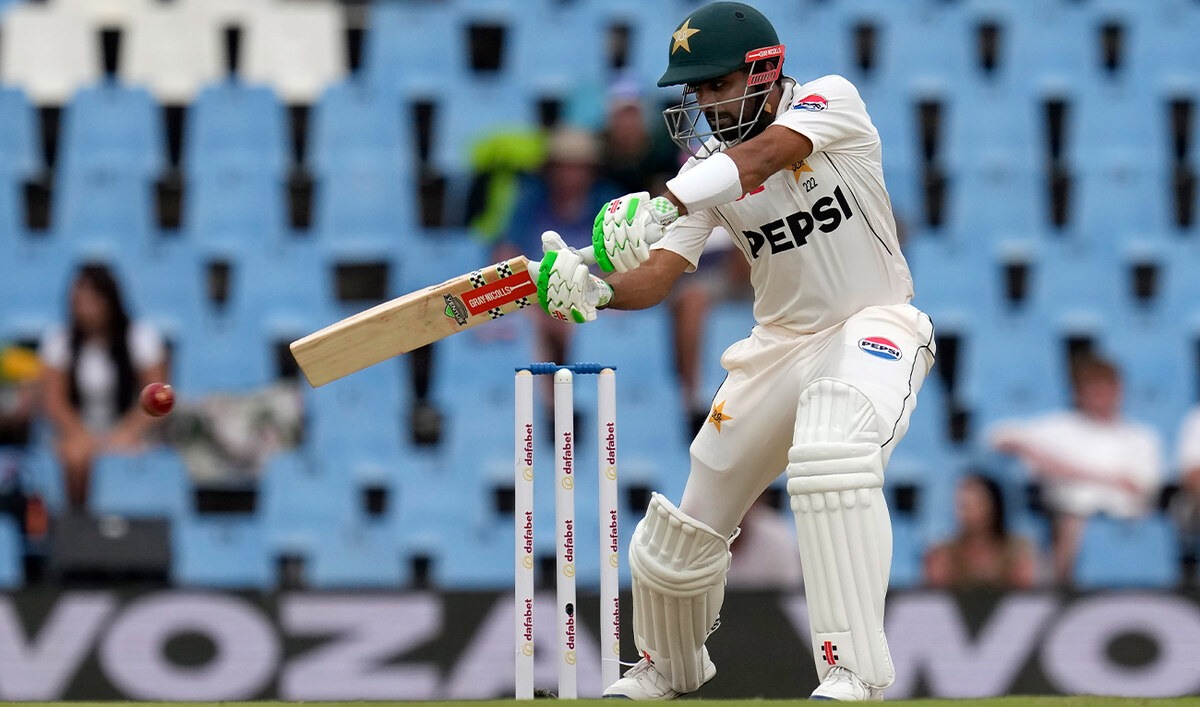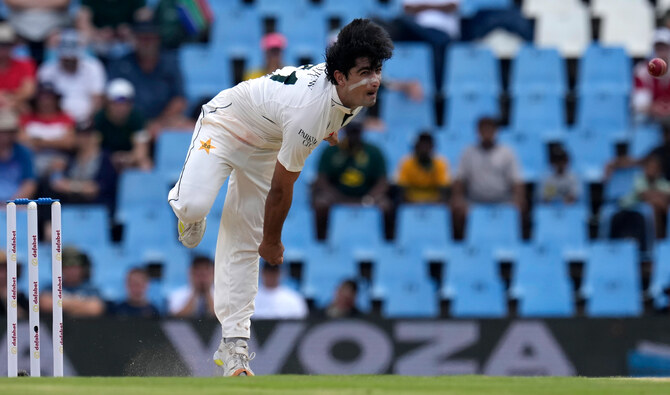KARACHI: Over 5,000 inmates at Karachi’s central prison were served fancy meals on the first day of Eid al-Fitr, an Islamic festival marking the end of the Muslim fasting month of Ramadan.
The high security jail, which was established in 1899, holds 128 death row prisoners along with 1,240 people convicted of heinous crimes.
According to the prison authorities, the place has 5,556 inmates which include both under trial and convicted prisoners.
Muhammad Ali, who makes food for them, said he was excited to see the menu after walking into the kitchen one day before Eid al-Fitr.

Muhammad Ali, the lead chef at Karachi's central prison, prepares food for inmates on April 28, 2022. (AN photo)
Ali said the special dishes included sheer khorma, a traditional dessert usually served at the outset of the special day, beef korma, a savory South Asian delicacy, and chicken biryani.
The jail authorities said they were trying to improve the quality of food and ensure it was served in a hygienic environment.
“You can look at my kitchen,” Ali told Arab News. “It’s spick and span since this is where I cook food for prisoners.”
He added that he had instructed his team to produce the best possible meals for the inmates to mark the special Eid festival.

This picture shows the main kitchen at Karachi's central prison on May 3, 2022. (AN photo)
The provincial administration of Sindh has tried to improve the jail environment in recent years by repealing the British-era laws and replacing them with the Sindh Prisons and Correctional Facilities Bill, 2019.
“Several programs, including art, music and computer classes, have been introduced in Karachi Central Jail and other prisons of Sindh,” Kazi Nazeer Ahmed, inspector general of the prison police, told Arab News, adding the authorities also tried to provide better food and greater independence to inmates on Eid.
Muhammad Arsalan, an under-trial prisoner, confirmed the information, saying: “Eid is an occasion when we get more freedom and better food.”
He told Arab News that inmates were allowed to visit different barracks to foster community spirit.
“Our day starts with dessert in the morning,” he said about a typical Eid festival. “We get everything [from jail officials] but our families also remember us and send us food that they cook on Eid which we share with other inmates who have families in other Pakistani cities.”
Asked about the prison routine, Hasan Sehto, superintendent of the central jail, said police officials offered their Eid prayers with prisoners.
“We choose prayer leaders from among inmates and arrange the religious ritual outside the cells so prisoners may offer their prayers in their respective wards,” he told Arab News.
He added prisoners were given time to visit different wards after saying their prayers. Apart from that, families intending to meet their loved ones are also allowed to spend time with their relatives in prison.
Officials of the jail police find the opportunity to spend Eid with their families after 6pm, he continued.
“Our children know that we are busy with inmates,” Sehto said. “They know that their father will come in the evening and only then will they be able to go to parks or dine in restaurants.”
Prisoners said their day was well spent.
“We cannot do all the fun activities which are possible for people outside of prison,” Pervez, a convicted inmate who goes by only one name, said. “Jail is after all jail. But this day does bring us some freedom.”
“We visit different barracks to meet and greet people,” he added. “This is something we cannot do here during our normal routine.”



















